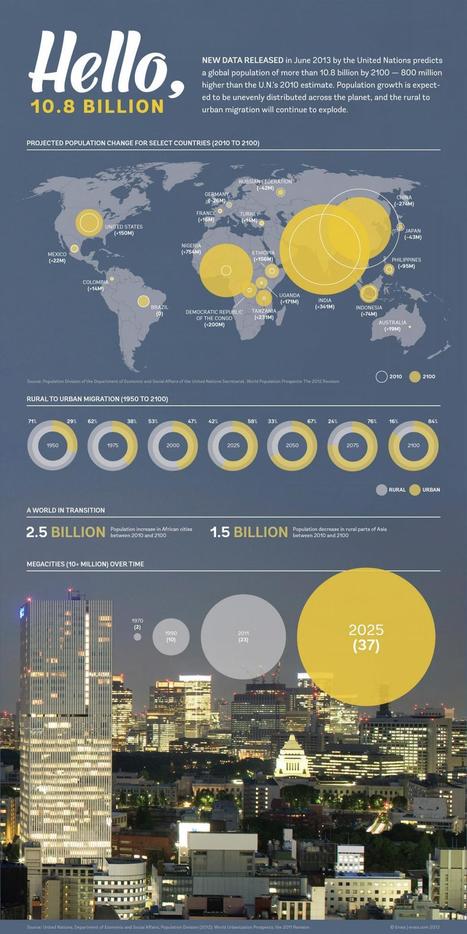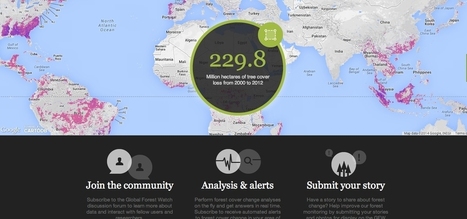Vous en avez assez de voir vos données utilisées à des fins commerciales et politiques sans même que l’on prenne la peine de vous prévenir ? Si vous restez sur le réseau, cela risque de ne pas s’arranger.
Get Started for FREE
Sign up with Facebook Sign up with X
I don't have a Facebook or a X account
 Your new post is loading... Your new post is loading...
 Your new post is loading... Your new post is loading...

Bhopkins's curator insight,
September 23, 2013 9:56 PM
population will continue to be a major consideration as we work to address issues ranging from energy and food security to water availability, species loss, pollution, urban planning and more in the decades ahead...
Aleasha Reed's curator insight,
September 27, 2013 9:14 AM
By the year 2100 our global population is calculated to reach 10.8 billion. The United States is expected to grow another 150 million by this time. Our population right now is 313.9 million right now. Our big cities will continue to grow, and new ones will arise as the years pass.
MissPatel's curator insight,
December 17, 2014 2:09 AM
A future to look forward to? Your potential future? Good, bad or ugly? |

Antonio Lopez's curator insight,
February 28, 2014 6:05 AM
One role of media should be to act like those speed monitors we see that tell us how fast we are going. Hopefully a program like Google's Global Forest Watch can help us monitor deforestation in real time. 
thinking peasant's curator insight,
February 28, 2014 6:51 AM
maybe they have not gone over to the dark side for good? 
Daniel LaLiberte's comment,
March 10, 2014 11:59 AM
Another writeup at: http://www.bbc.com/news/science-environment-26287137
|












